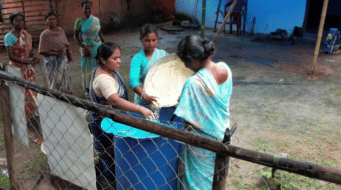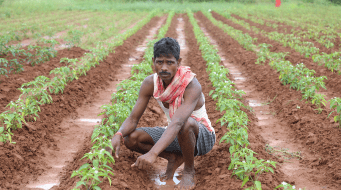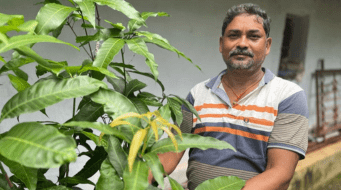-Shrikant Maury
Groundwater is an integral part of the hydrogeological cycle and is an important natural resource of great social and economic significance. Today, groundwater resources across the country are under great stress: pollution , over-extraction, increasing stress due to population growth, emerging equity issues and added climate change. In much of Maharashtra, this precious natural resource occurs in weathered and fractured formations of the unsaturated zone. The hydro-geology of Deccan basalt is quite complex. This poses a challenge in identifying suitable groundwater bearing zones and location of recharge sites. Competition for this scarce resource has meant that farmers are drilling more wells of greater depth, leading to a greater disruption in the underground natural hydro-logical flow. Responding to this challenge requires a two- pronged approach. First, it is important to generate scientific and reliable knowledge that helps stakeholders to access and understand their underground reservoirs (aquifers). Second, an appropriate institutional setup must be put in place to ensure that this knowledge is operationalised in a sustainable and equitable manner. In this blog, we look at some of the work that we’ve been doing on the first front.
In order to build a comprehensive hydrological data, we are using multiple techniques which include satellite remote sensing, geophysical surveys and lithological analysis to identify water bearing/barren zones and their vertical and horizontal extent in semi-arid regions of Marathawada. The study will cover the Purna sub-basin to evaluate the availability of groundwater and its distribution. The findings will allow us to develop an optimised groundwater yield model, aquifer thickness model, soil and overburden thickness model. In addition, we expect it to provide a solution for the availability of drinking water in water scarce areas Not only will it suggest new groundwater resources that can be tapped but also will pinpoint aquifer recharge sites and related earthwork during execution of various projects. Further, a sound groundwater database will support future research, development, management plans and policy review for groundwater.

In the summer of 2016, I undertook a geophysical survey in the Jaffrabad & Bhokardan blocks of Jalna district (Fig. 1). During the course of fieldwork, I had a chance to have conversations with farmers on the topic of groundwater. Most of the discussions revolved around the problems of agrarian distress. But on knowing that I was a geophysicist, a farmer was curious to get answers to his questions.; “A bore well in my neighbour’s field yields a huge amount of water which never ends, why so? Would it be possible to get as much groundwater yield as his? Please suggest where I can dig my bore well?in which direction do I to go for lateral drilling and at what depth will I get access to huge amount of water?” I explained to him that the work I was doing wasn’t for his particular field, but after completing this study, I would come back and help his village identify potential sites for drinking water sources that would serve the entire village.

During my course of time of the geophysical survey, I have realised that the villagers and farmers have ample of local knowledge on changing water scenarios and how to deal with the situation within their limit. I have seen farmers doing praiseworthy earthwork to build water augmentation structures with their own initiatives and procuring or making their water resource safe (Figs. 3 and 4). We hope that the research will help to bridge the gap between technological knowledge, implementation and practices. We are trying to understand surface and subsurface hydrogeological heterogeneities, tangible exploitation of groundwater resources along the different land forms in the regions. My final conclusion is that if we will equip farmers with knowledge and information on how exactly their underground water system works and how it will be sustainable for their needs and healthy ecosystem. Then, they will be able to manage the surface and unseen of the underground water in a better way.







2 thoughts on “Do we understand the importance of our underground reservoirs?”
Hello Sir,
I am Tanmay Keluskar from M.S.University,Baroda. Pursuing my master’s degree in Geology.
I’m planning to work in Aquifer mapping in Deccan basalt. I’m really feeling blessed that i found your blog as I’m having plans similar to what you have stated in the given blog.
I would feel fortunate to be in contact with you and would love to get knowledge regarding this topic.
Thank you for your feedback! Please write to us on info@wotr.org.in